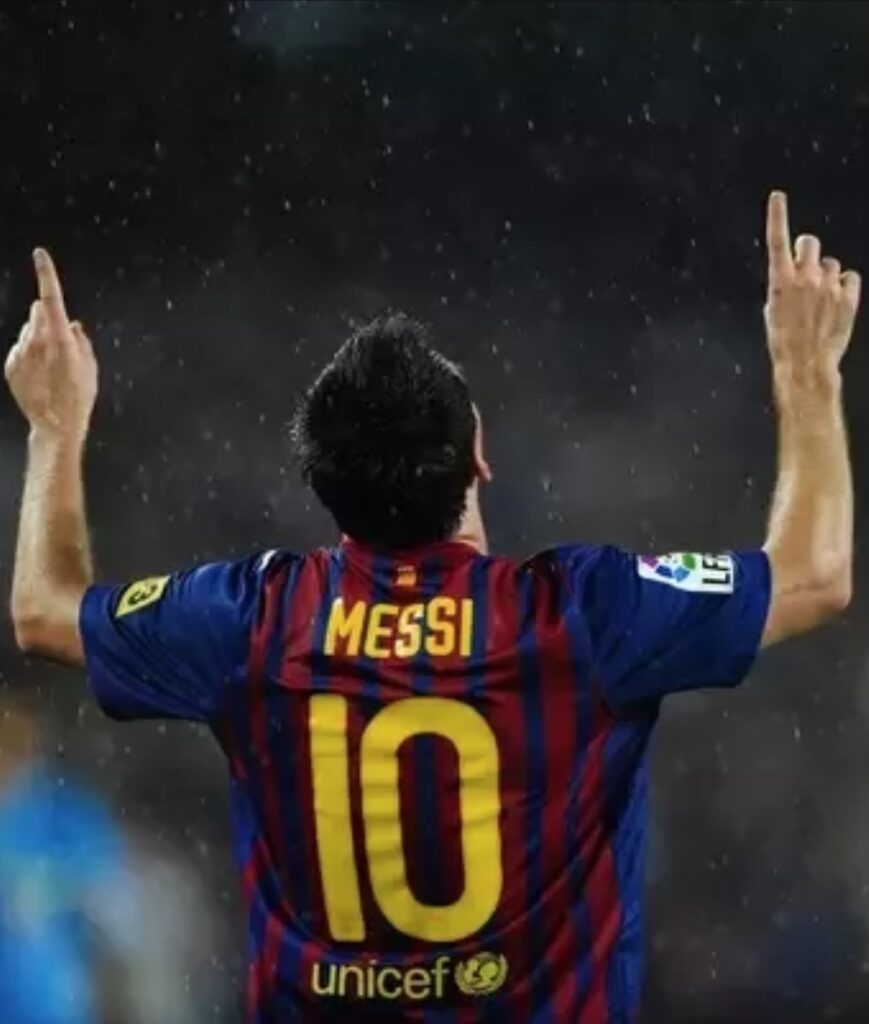Lionel Messi’s evolution from a skinny little kid to the ‘GOAT’ is one for football’s history books. In his near-two-decade-long career, the Argentine forward has kept on reinventing his playing style – while also retaining that core magic about his performances alive.
Over the course of his career, he has often had to tweak his technique and style to benefit the kind of team he’s played for.
Right now, Messi seems more satisfied with creating chances or helping with the general build-up play rather than dribbling past a sea of bodies – even though he brought that part of him back for the World Cup semi-final against Croatia.
He now acts like a leader and assumes a lot of responsibility, giving his younger players more freedom to cause chaos in other parts of the pitch.
But Messi was not always like this and played with a different kind of motivation during most of his years at Barcelona.

Leo made his professional debut with the La Liga club and had the best years of his career with them – even scoring a record-setting 91 goals in 2012.
He was going through his ‘goal machine’ phase then and was obsessed with scoring goals than being more of a ‘team player’.
Where did Ankara Messi originate from?
But there is one nostalgic part of Messi that some of his fans are still deeply in love with to this day. Some Messi fans have created the term ‘Ankara Messi’ to describe the earlier years of his time at Barca.
This is an ode to Leo when he was still a teenager and was yet to even receive the no.10 shirt at Barcelona.
In the 2006/07 season, Messi – who was 19 at the time – paid the ultimate tribute to Diego Maradona during Barca’s Copa Del Rey semi-final game against Getafe.
The Blaugrana were winning the game around the half-hour mark when Leo decided to pull off the spectacular.
Nothing will ever beat Ankara Messi pic.twitter.com/cN0oBOve1y
— Dugeri(@Dugeri_) January 31, 2023
He received the ball around the halfway line and made a darting run towards the goal.
He danced past a number of bodies – just as Maradona did for his ‘Goal of the Century’ against England at the 1986 World Cup – before going around the goalkeeper and scoring.
As it unravelled, the Spanish commentator Joaquim Maria Puyal delivered an iconic bit of commentary for it.
He kept shouting ‘Ankara Messi’ repeatedly before shouting ‘gol, gol, gol, gol, gol’ after the Argentine produced the unthinkable. Barca went on to win the game 5-2.
This younger self of Messi – who was known to be absolutely fearless and ruthless with his dribbling ability – has since been termed as ‘Ankara Messi’ by his fans.
What is the meaning of Ankara Messi?
The term usually leaves fans scratching their heads whenever it makes a return on social media, which is quite often. Fans are often confused because Ankara is the capital of Turkey, what does it have to do with Messi’s dribbling?
The actual word being spoken by the commentator is not ‘ankara’ but the Catalan adverb ‘encara’, which means ‘still’ in English.
The commentator was shouting ‘Still Messi’ in disbelief at Messi’s rapid pace throughout his brilliant run.
Ankara Messi memes keep running wild
During his early years at Barca, Messi proved just how talented he was with goals like that.
Even though he lacked in some physical aspects, Leo was almost unplayable when he got into the groove and was dead-set on dribbling past a sea of bodies just to score important goals.
Even after seeing him win seven Ballon d’Or, the World Cup and multiple major domestic titles – some Messi fans still reckon the ‘Ankara Messi’ version of him to be his most devastating form.
Since then, a lot of memes have been created by using this ‘Ankara Messi’ commentary too. Some of his fans have posted clips of themselves trying to replicate his heroics with this in the background.
A few sillier clips have also been created – like adding it to an ice hockey goal or a boy trying to flirt with a girl in public.
Messi is unlikely to ever return to his ‘Ankara Messi’ persona because of his age and satisfaction with playing a comparatively more ‘withdrawn’ role – which itself was exceptional enough to help him win the World Cup last year.



